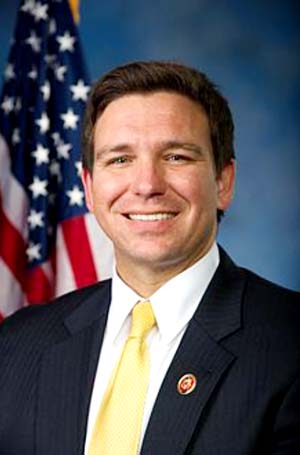![]()
School Choice
Regardless of income
Governor Ron DeSantis
By Tami Stevenson
Are you a parent or guardian that has always wanted to be able to afford for your kids to attend a private or charter school but inevitably did not meet the financial guidelines for grants or government assistance and paying for it all yourself was near to impossible?
Thanks to Governor Ron DeSantis, who said, “Game on!” when he signed Education CS/HB 1, Monday, March 27, parents in the state of Florida, will now be in full control of their children’s education, regardless of income. The bill will become effective July 1, 2023. This should give parents time to seek out the best options for their children before the 2023/24 school year begins. As long as the school meets DOE guidelines, parents can now take their children to the school of their choice. The dollars will follow the student with this new legislation and who knows better than the parents what’s best for their child?
Five other states have adopted school choice and other states are expected to follow suite. Arizona was the first to embrace universal school choice, in 2022.
A poll was conducted throughout the nation that found 75 percent of parents support school choice, reaching across political party lines and diverse belief systems.
Local school officials are saying things like, “Bring it on! Healthy competition is a good thing and so is school choice.”
“This legislation is a transformational opportunity to make it clear that the money follows the child, and parents have a right to guide their child’s education as they see fit,” said Senator Corey Simon. “We recognize that parents are a child’s first and best teachers. A street address or level of income should never replace the vital and irreplaceable role of a parent to decide what academic experience best fits the needs of their child. This bill is about access and opportunity for all students and every family in our state.”
According to a Governor’s press release, the bill eliminates the current enrollment cap and the exemptions to the maximum number of students who can participate in FES-EO. For students who are not full-time enrolled in public or private school or who are not Home Education Program students, there will be a cap of 20,000 new scholarships for the 2023-2024 school year and a cap of 40,000 new scholarships for every year after that.
Additionally, this legislation requires the Office of K-12 School Choice to develop an online portal that enables parents to choose the best educational options for their student. The bill also eliminates the restrictive requirement that students must complete at least one credit through a virtual course to graduate.
HB 1 eliminates the current financial eligibility restrictions and allows any student who is eligible to enroll in K-12 to participate in available school choice options. The bill also continues to prioritize awards to students with household incomes that do not exceed 185 percent of the federal poverty level while incorporating a second priority to award scholarships to students who live in households with incomes between 185 percent of the federal poverty level and 400 percent of the federal poverty level. HB 1 also increases the annual scholarship adjustment for the Family Empowerment Scholarship for Students with Unique Abilities from one percent to three percent to address high demand and wait lists.
Finally, to make the teaching profession more accessible, the bill removes red tape and bureaucracy from the profession by allowing the general education requirement to be waived for teachers who have had three years in the classroom if they have been rated ‘effective’ or ‘highly effective’ for three consecutive years. The bill also expands the length of a temporary teaching certificate from three years to five years.
To further reduce bureaucracy in the profession, the bill requires the State Board of Education to recommend additional repeals and revisions to the education code.
















